Agender: a person who has an internal sense of being neither male nor female nor some combination of male and female
Merriam Webster
I’m no gender expert. In fact, I don’t even have a gender. You’d be better off calling me a “no-gender” expert.
Expert? Still not accurate. That would be like calling a tree a “tree expert.” It’s a tree. It knows what it’s like to be a tree, and it can thrive as a tree without being an authority on the science of trees.
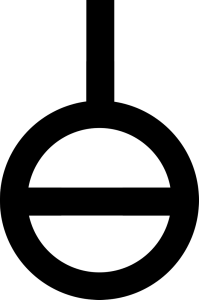
Agender is the word for a person without gender. Like me.
Many people, especially cisgender people, don’t understand what it means to be agender, and many folks even insist that we don’t exist. So this tree has had to learn a lot about how to explain its existence, how it functions, and the fact that trees aren’t imaginary—no matter how impossible you think it is that gallons of water could ever get so high in the air. I’m stretching the metaphor, but you get it.
If I can’t explain myself, it’s pretty tough to participate in society. So I’ve had to learn how.
That’s what kind of “expert” I am.
Now that you know my credentials, let’s cover what it means to be agender.
What it means to be agender
An agender person is a person without gender. They are neither a man nor a woman. They aren’t some combination of both. They are a genderless human.
Some agender people appear androgynous (like me), but others may have bodies that appear more masculine or more feminine. A person’s body characteristics don’t determine their gender (though our society often tends to enforce things that way).
Some agender people may use gender-neutral pronouns (like me: I use they/them pronouns). Other agender folks may use she/her or he/him pronouns.
Some agender folks may pursue surgeries (I got top surgery, for example) or hormone therapies that help them express their true selves more accurately. Some don’t.
It’s important to remember that there is no standard “agender body.” An agender person can appear in many different ways—the key factor distinguishing an agender person is simply that they lack connection to any sense of gender.
Agender is a term relating to the mind. And every mind has a distinct sense of self.
That being the case, you can’t determine whether or not someone is agender based on their body, or even based on how they present themselves.
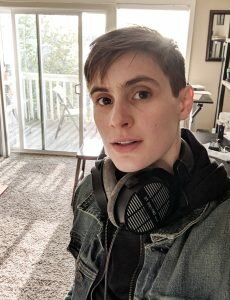
Here’s what I look like, in case you’re wondering. But don’t assume that all agender people look like me.
If someone is agender, to them, gender is an arbitrary performance, and not a true expression of their real self.
Navigating society can be challenging for us agender folks, because almost every social interaction is gendered in some way.
Clothing is gendered. Language is gendered. Who people spend time with and why is gendered. Jobs are gendered. Mannerisms are gendered. Activities are gendered. You’d be amazed by how much everything you do revolves around gender. If your gender is part of the system, it’s easy not to notice.
For me, as an agender person, it seems like almost everyone is defining their lives by an incredibly complex system of bizarre rules that people are inexplicably not allowed to break. People rigidly hold each other to these rules for reasons that I can’t understand.
I can’t keep track of all the rules. They are nonsensical to me. They don’t have any mapping to right and wrong—they’re just customs, formalities, decorations, games. Maybe other folks experience them as instincts. That’s the only way I can make sense of how everyone seems to keep track of all the rules so effortlessly.
Whatever it is, I just don’t understand it. It’s a sense I completely lack.
I spent almost three decades trying to learn and memorize the weird maze of rules people play by before giving up and accepting that I don’t have gender, and that I shouldn’t waste my life trying to force myself to act like it.
Agender is a subcategory of nonbinary
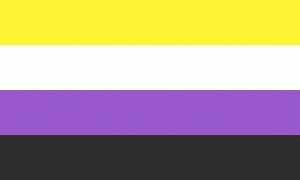
Nonbinary is an umbrella term that includes all the gender identities that are not strictly man or woman. There’s a huge variety of nonbinary identities that showcase how varied, fascinating, and complex gender truly is.
Agender is one of those nonbinary identities. I often tell folks that I’m nonbinary, because it’s a more well-known word than agender, and it still accurately describes me—it’s just more broad. It’s like saying you live in California vs. saying you live in San Diego. It’s still accurate for a San Diego resident to say they live in California.
Nonbinary is a subcategory of transgender
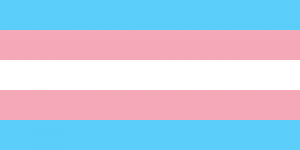
The word “transgender” includes anyone who was assigned an inaccurate gender when they were born. This includes transgender men and women, and it includes nonbinary people.
There’s a huge variety of transgender people. I often tell people I’m transgender, because it’s a very well-known word, and it helps me connect with other transgender people. The problem is that even though this word accurately describes me, it’s often misunderstood by cisgender people. When I use it, people sometimes assume that I’m a transgender man, because they don’t understand that nonbinary is a thing (let alone agender).
What is it like to be agender?
I can’t describe every agender person’s experience by a long shot, but I can tell you a little bit about mine.
The easiest way to describe it is this. It feels like I’m in a dystopian society that’s trying to manipulate and control me until I am no longer me.
It’s like society has attempted to brainwash me into seeing all of my natural modes of self-expression as messed up, and to replace those modes with arbitrary other ones that it likes better. My entire life is comprised of my environment chipping away at my psyche.
The attempt to reprogram me is constant and ongoing, but the software install never has really worked. I’ve tried to run the program, but it always felt fake and contrived. The best I could ever do was memorize rules.
And, like I mentioned previously, the rules never made any sense to me, so I could never keep track of them all. But I sure tried, because not keeping them led to scrutiny, isolation, and punishment. The better I kept them, the safer I was.
I’ve lived my life feeling like an unwelcome foreign entity in this world. Strangely, I feel more foreign to human society than I feel about other parts of the living world that aren’t even human. Like the woods, for instance. When I spend time in nature, it helps me feel like maybe this planet can be my home, too—even if most humans don’t want me here.
Most people don’t realize all the ways they communicate that they don’t want me here. They’re often friendly enough on the surface. But most of the time, I can’t interact with people without getting lumped into one of two groups that I’ve never belonged to, and never will belong to. (This is known as being misgendered.) It’s a powerful demonstration that most people think this world is only for those two groups, and not for anyone else.
I’m not angry with anyone about this. It’s just not a good system, and we need to change it.
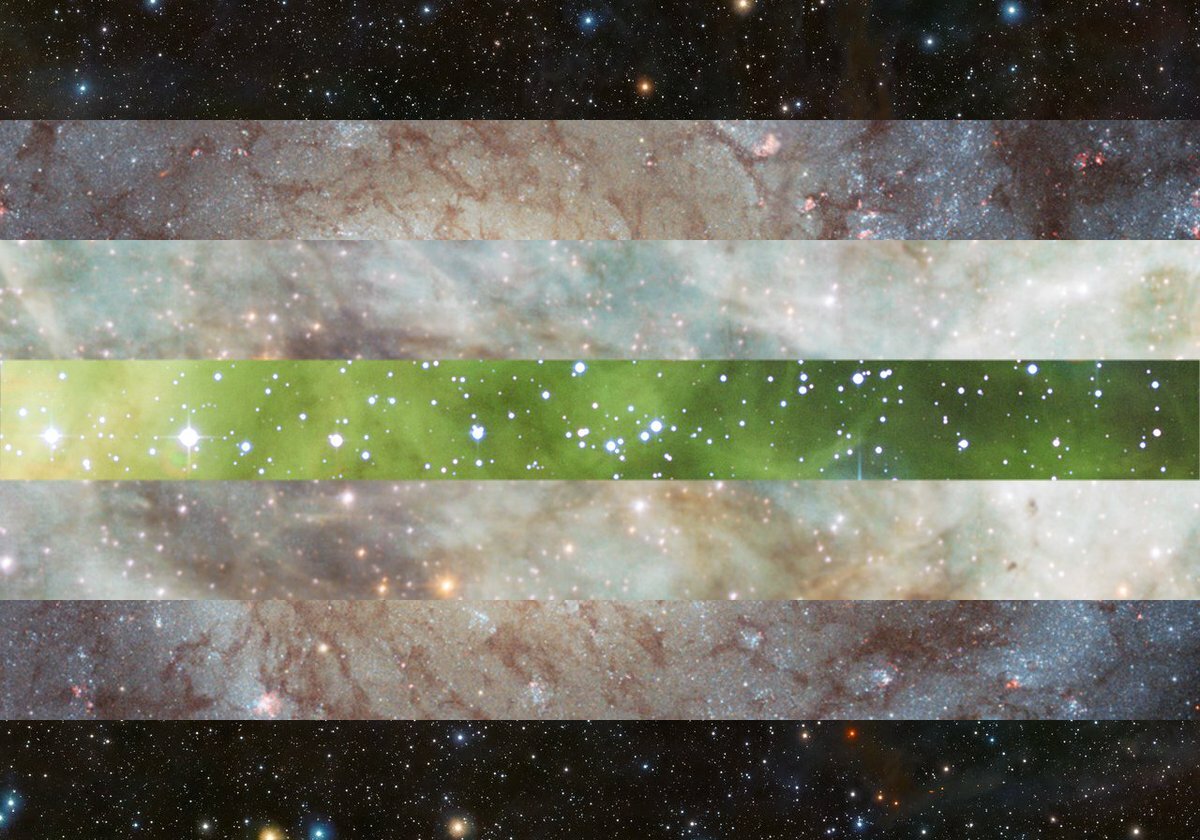
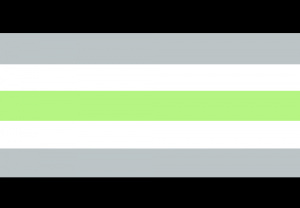
This was SO affirming and grounding for me. Thank you for being so articulate. I also feel most like myself in the woods.
Yeeeesss I agree with everything you wrote, thanks 😁👍 especially the part about feeling like you’re a foreign entity in human society
Thank you for clarifying all this so it is understandable! I have just recently allowed myself to realize my non-binary gender and asexual nature and exploring all I can to free myself from what you talked about—the forcing of yourself to be what you were told to be. Thank you, thank you.
Yes, 100% this:
“I can’t keep track of all the rules. They are nonsensical to me. They don’t have any mapping to right and wrong—they’re just customs, formalities, decorations, games. Maybe other folks experience them as instincts. That’s the only way I can make sense of how everyone seems to keep track of all the rules so effortlessly.”
Thank you.
I am editing a book about TG, GNC and non-binary elders and their concerns about aging in a conservative world and other end-of-life concerns. Usually, I see on-line and at conferences only youthful folks using terms describing being GNC or non-binary, while most older folks are “stuck” in binary identities. I am seeking diversity and inclusion in my book and am seeking elder (50 y/o and up) folks who identify as agender to contribute their stories for my book.
In 3 days I will be 62. I have been agender for a long time. Haven’t thought about it in relation to end-of-life issues. Do you have writers’ guidelines? Why do you think most older folks are “stuck”? Are you associated with a school or doing this on your own? A few of my questions.
This is so well written! It is hard to find Agender experiences really written down and described in a way that I think most people could at least begin to understand. It feels so validating to see feelings I have worded this way and to know that someone else feels this way too!
Adrien, thank you so much for making this post, and really this website as a whole. This site directly led to be realizing that I was nonbinary, specifically agender, and all the information and resources here have been invaluable. You made me realize who I really am. Again, thank you.
Adrien,
Thank you very much for your well-written, concise, and clear narration of your experience and identity. For some time now I have felt very, very unattached to and also having a sense of disgust at the idea of being the male gender (and all the roles, behaviors, and ignorance that seem ascribed to it) to which I was assigned to at birth. I’ve been wondering what that means for me. Given that I do not identify with the female gender either, that I’ve identified as a gay male publicly, that I am in a content relationship with my boyfriend, and that I do not want to change my body…I’ve been confused about what gender identity if any applies to me. I’ve felt somewhere “in between” in how I act related to gender stereotypes but that feels wrong too, as I do not attempt to act in “gendered” ways and don’t really want to be associated with doing things because of perceived gender…I think gender is a construct and an awful construct at that. “Agender” is now a term I can see as possibly best describing me. I cannot thank you enough for helping see this possibility.
Best Wishes to you and thanks again!